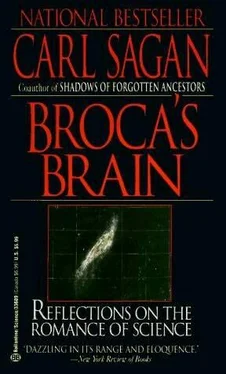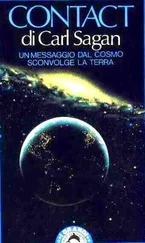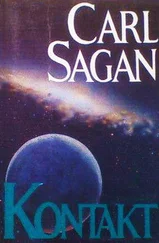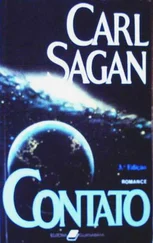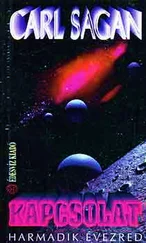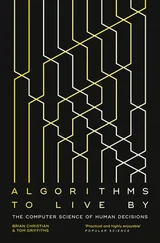Carl Sagan - Broca's Brain - The Romance of Science
Здесь есть возможность читать онлайн «Carl Sagan - Broca's Brain - The Romance of Science» весь текст электронной книги совершенно бесплатно (целиком полную версию без сокращений). В некоторых случаях можно слушать аудио, скачать через торрент в формате fb2 и присутствует краткое содержание. Жанр: Физика, на английском языке. Описание произведения, (предисловие) а так же отзывы посетителей доступны на портале библиотеки ЛибКат.
- Название:Broca's Brain: The Romance of Science
- Автор:
- Жанр:
- Год:неизвестен
- ISBN:нет данных
- Рейтинг книги:3 / 5. Голосов: 1
-
Избранное:Добавить в избранное
- Отзывы:
-
Ваша оценка:
- 60
- 1
- 2
- 3
- 4
- 5
Broca's Brain: The Romance of Science: краткое содержание, описание и аннотация
Предлагаем к чтению аннотацию, описание, краткое содержание или предисловие (зависит от того, что написал сам автор книги «Broca's Brain: The Romance of Science»). Если вы не нашли необходимую информацию о книге — напишите в комментариях, мы постараемся отыскать её.
Broca's Brain: The Romance of Science — читать онлайн бесплатно полную книгу (весь текст) целиком
Ниже представлен текст книги, разбитый по страницам. Система сохранения места последней прочитанной страницы, позволяет с удобством читать онлайн бесплатно книгу «Broca's Brain: The Romance of Science», без необходимости каждый раз заново искать на чём Вы остановились. Поставьте закладку, и сможете в любой момент перейти на страницу, на которой закончили чтение.
Интервал:
Закладка:
A year later, by sheerest accident, I stumbled across a magazine called Astounding Science Fiction in the neighborhood candy store. A glance at the cover and a quick riffle through the interior showed me it was what I had been looking for. With some effort I managed to scrape together the purchase price, opened it at random, sat down on a bench not twenty feet from the candy store and read my first modern science-fiction short story, “Pete Can Fix It,” by Raymond F. Jones, a gentle time-travel story of post-nuclear-war holocaust. I knew about the atom bomb-I remember an excited friend explaining to me that it was made of atoms-but this was the first I had seen about the social implications of the development of nuclear weapons. It got you thinking. The little device, though, that Pete the garage mechanic put on automobiles so passers-by might make brief cautionary trips into the wasteland of the future-what was that little device? How was it made? How could you get into the future and then come back? If Raymond F. Jones knew, he wasn’t telling.
I found I was hooked. Each month I eagerly awaited the arrival of Astounding. I read Jules Verne and H. G. Wells, read from cover to cover the first two science-fiction anthologies that I was able to find, made scorecards, similar to those I was fond of making for baseball, on the quality of the stories I read. Many of the stories ranked high in asking interesting questions but low in answering them.
There is still a part of me that is ten years old. But by and large I’m older. My critical faculties and perhaps even my literary tastes have improved. In rereading L. Ron Hubbard’s The End Is Not Yet , which I had first read at age fourteen, I was so amazed at how much worse it was than I had remembered that I seriously considered the possibility that there were two novels of the same name and by the same author but of vastly differing quality. I can no longer manage credulous acceptance as well as I used to. In Larry Niven’s Neutron Star the plot hinges on the astonishing tidal forces exerted by a strong gravitational field. But we are asked to believe that hundreds or thousands of years from now, at a time of casual interstellar spaceflight, such tidal forces have been forgotten. We are asked to believe that the first probe of a neutron star is done by a manned rather than by an unmanned spacecraft. We are asked too much. In a novel of ideas, the ideas have to work.
I had the same kind of disquieting feelings many years earlier on reading Verne’s description that weightlessness on a lunar voyage occurred only at the point in space where the Earth’s and the Moon’s gravitational pulls canceled, and in Wells’s invention of the antigravity mineral cavorite: Why should a vein of cavorite still be on Earth? Shouldn’t it have flung itself into space long ago? In Douglas Trumbull’s technically proficient science-fiction film Silent Running , the trees in vast closed spaceborne ecological systems are dying. After weeks of painstaking study and agonizing searches through botany texts, the solution is found: plants, it turns out, need sunlight. Trumbull’s characters are able to build interplanetary cities but have forgotten the inverse square law. I was willing to overlook the portrayal of the rings of Saturn as pastel-colored gases, but not this.
I have the same trouble with Star Trek , which I know has a wide following and which some thoughtful friends tell me I should view allegorically and not literally. But when astronauts from Earth set down on some fardistant planet and find the human beings there in the midst of a conflict between two nuclear superpowers-which call themselves the Yangs and the Coms, or their phonetic equivalents-the suspension of disbelief crumbles. In a global terrestrial society centuries in the future, the ship’s officers are embarrassingly Anglo-American. Only two of twelve or fifteen interstellar vessels are given non-English names, Kongo and Potemkin. (Potemkin and not Aurora?) And the idea of a successful cross between a “Vulcan” and a terrestrial simply ignores what we know of molecular biology. (As I have remarked elsewhere, such a cross is about as likely as the successful mating of a man and a petunia.) According to Harlan Ellison, even such sedate biological novelties as Mr. Spock’s pointy ears and permanently querulous eyebrows were considered by network executives far too daring; such enormous differences between Vulcans and humans would only confuse the audience, they thought, and a move was made to have all physiologically distinguishing Vulcanian features effaced. I have similar problems with films in which familiar creatures, slightly changed-spiders thirty feet tall-are menacing the cities of the Earth: since insects and arachnids breathe by diffusion, such marauders would asphyxiate before they could savage their first city.
I believe that the same thirst for wonder is inside me that was there when I was ten. But I have learned since then a little bit about how the world is really put together. I find that science fiction has led me to science. I find science more subtle, more intricate and more awesome than much of science fiction. Think of some of the scientific findings of the last few decades: that Mars is covered with ancient dry rivers; that apes can learn languages of many hundreds of words, understand abstract concepts and construct new grammatical usages; that there are particles that pass effortlessly through the entire Earth so that we see as many of them coming up through our feet as down from the sky; that in the constellation Cygnus there is a double star, one of whose components has such a high gravitational acceleration that light cannot escape from it: it may be blazing with radiation on the inside but it is invisible from the outside. In the face of all this, many of the standard ideas of science fiction seem to me to pale by comparison. I see the relative absence of these things and the distortions of scientific thinking often encountered in science fiction as terrible wasted opportunities. Real science is as amenable to exciting and engrossing fiction as fake science, and I think it is important to exploit every opportunity to convey scientific ideas in a civilization which is both based upon science and does almost nothing to ensure that science is understood.
But the best of science fiction remains very good indeed. There are stories so tautly constructed, so rich in accommodating details of an unfamiliar society that they sweep me along before I even have a chance to be critical. Such stories include Robert Heinlein’s The Door into Summer , Alfred Bester’s The Stars My Destination and The Demolished Man , Jack Finney’s Time and Again , Frank Herbert’s Dune and Walter M. Miller’s A Canticle for Leibowitz. You can ruminate over the ideas in these books. Heinlein’s asides on the feasibility and social utility of household robots wear exceedingly well over the years. The insights into terrestrial ecology provided by hypothetical extraterrestrial ecologies as in Dune perform, I think, an important social service. He Who Shrank , by Harry Hasse, presents an entrancing cosmological speculation which is being seriously revived today, the idea of an infinite regress of universes-in which each of our elementary particles is a universe one level down, and in which we are an elementary particle in the next universe up.
A rare few science-fiction novels combine extraordinarily well a deep human sensitivity with a standard science-fiction theme. I am thinking, for example, of Algis Budrys’ Rogue Moon , and of many of the works of Ray Bradbury and Theodore Sturgeon-for example, the latter’s To Here and the Easel , a stunning portrayal of schizophrenia as perceived from the inside, as well as a provocative introduction to Ariosto’s Orlando Furioso.
Читать дальшеИнтервал:
Закладка:
Похожие книги на «Broca's Brain: The Romance of Science»
Представляем Вашему вниманию похожие книги на «Broca's Brain: The Romance of Science» списком для выбора. Мы отобрали схожую по названию и смыслу литературу в надежде предоставить читателям больше вариантов отыскать новые, интересные, ещё непрочитанные произведения.
Обсуждение, отзывы о книге «Broca's Brain: The Romance of Science» и просто собственные мнения читателей. Оставьте ваши комментарии, напишите, что Вы думаете о произведении, его смысле или главных героях. Укажите что конкретно понравилось, а что нет, и почему Вы так считаете.
